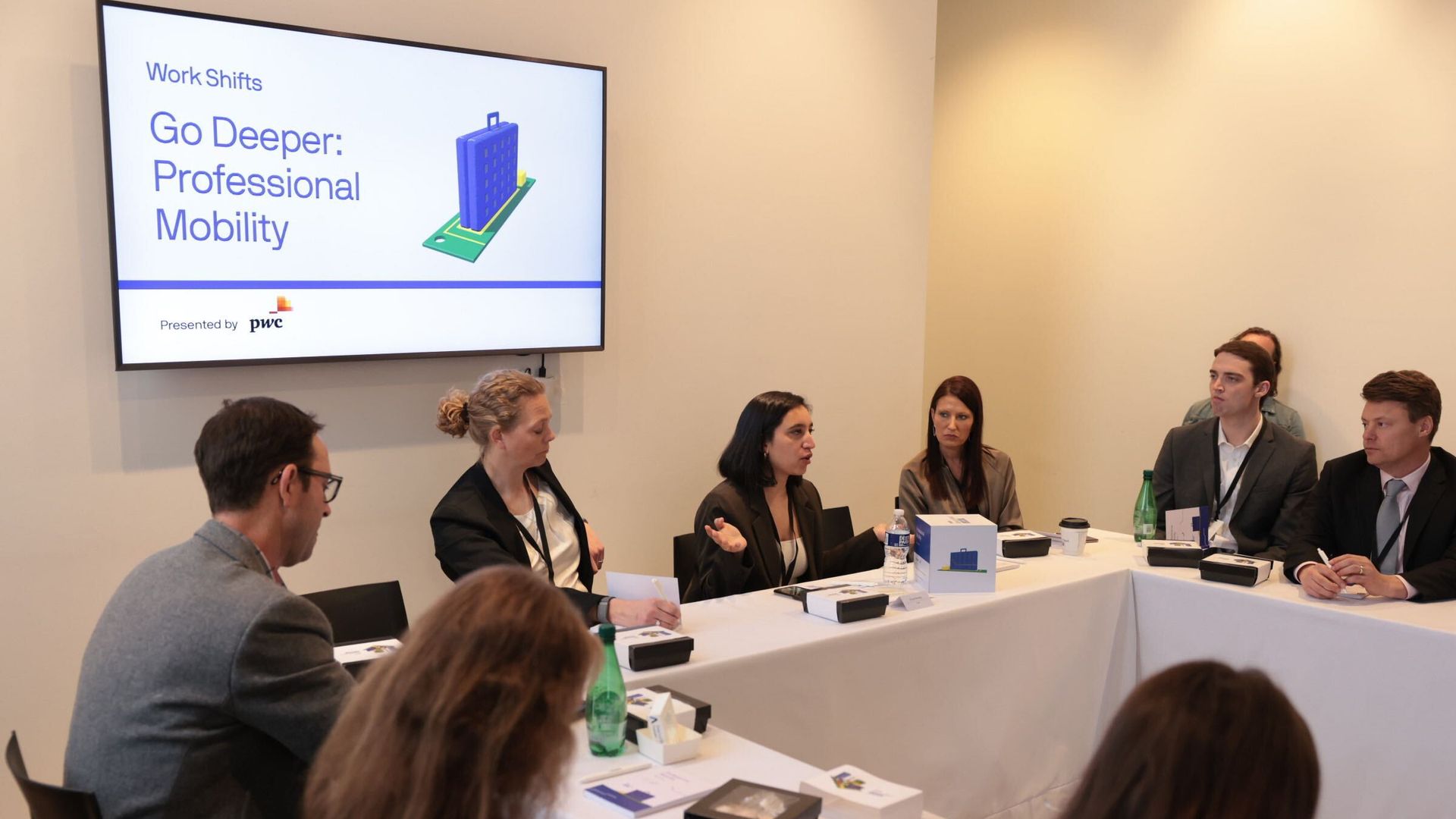
Photo: Chuck Kennedy/Axios
Business and thought leaders around the future of work and professional mobility came together at Axios’ inaugural What’s Next Summit on Tuesday for a discussion on how employees now prefer to be treated like customers.
Why it matters: With COVID-19, the great resignation and technological shifts, everyone from business owners to job seekers are asking what jobs will look like in the years to come.
The big picture: Over the past two years, people have fled multiple industries in droves as health concerns, remote work, job/life balance, career expectations and opportunities have shifted.
- Last year, studies showed upward of 40% of workers were considering leaving their jobs.
What's happening: The discussion, moderated by Axios executive editor Aja Whitaker-Moore and Axios Finish Line co-author Erica Pandey, revolved around how evolving culture, values and geographical considerations have radically changed the professional landscape.
“Fair compensation is table stakes,” senior partner at PwC Terri McClements said during the session, highlighting how competitive hiring has become for employers.
- As people have left companies and industries, seeking more schedule flexibility or more fulfillment, prospective employees expect companies to offer more robust forms of compensation.
- “They want to know whether your culture meets theirs,” Shannon Schuyler, chief inclusion officer at PwC, said. “They want to be treated with dignity. They want to be treated like the customer.”
- About this shift in attitudes, Schuyler said, “If we’re not excited about it, then just move aside because it’s going to happen with or without us.”
Access to flexible schedules and remote work has unsurprisingly proved to be a large factor in employee well-being throughout the pandemic. As business leaders eye a return to the office, the What’s Next Summit discussion prompted participants to recognize who exactly is most excited to come back.
- “The people who are coming back are white male executives and non-caretakers,” Brian Elliott, executive leader at Future Forum, said.
- Discussion participants said that remote work offers more time for those with families, but it allows for an escape from micro-aggressions, code switching expectations and other difficulties faced by people of color.
- Elliott said when it comes to looking at returning to the office, considering all the difficulties a team faces is essential.
- “You’ve got to walk your talk,” Elliott said. “It’s got to start at the executive suite.”
According to the discussion’s participants, these workforce evolutions are even more of an expectation in younger generations.
- Kristin Sharp, the CEO of Flex, which serves app-based earning platforms, said that she had heard from younger users that the traditional, single-job career path seemed to them “fundamentally unstable, because you only have one income source.”
- A recent college grad said in the discussion that she had felt in “high demand” while job searching but also shared the importance she placed on an organization’s activism, environmental impact, amenities, student loan reimbursement programs and mentorship opportunities.
The bottom line: How companies adapt to evolving expectations around hiring, corporate identity and office space seems increasingly important to prospective job seekers.
Editor’s note: This post has been corrected to identify PwC senior partner Terri McClements as the source of a quote (not PwC partner Terri-Ann Dautzenberg).
